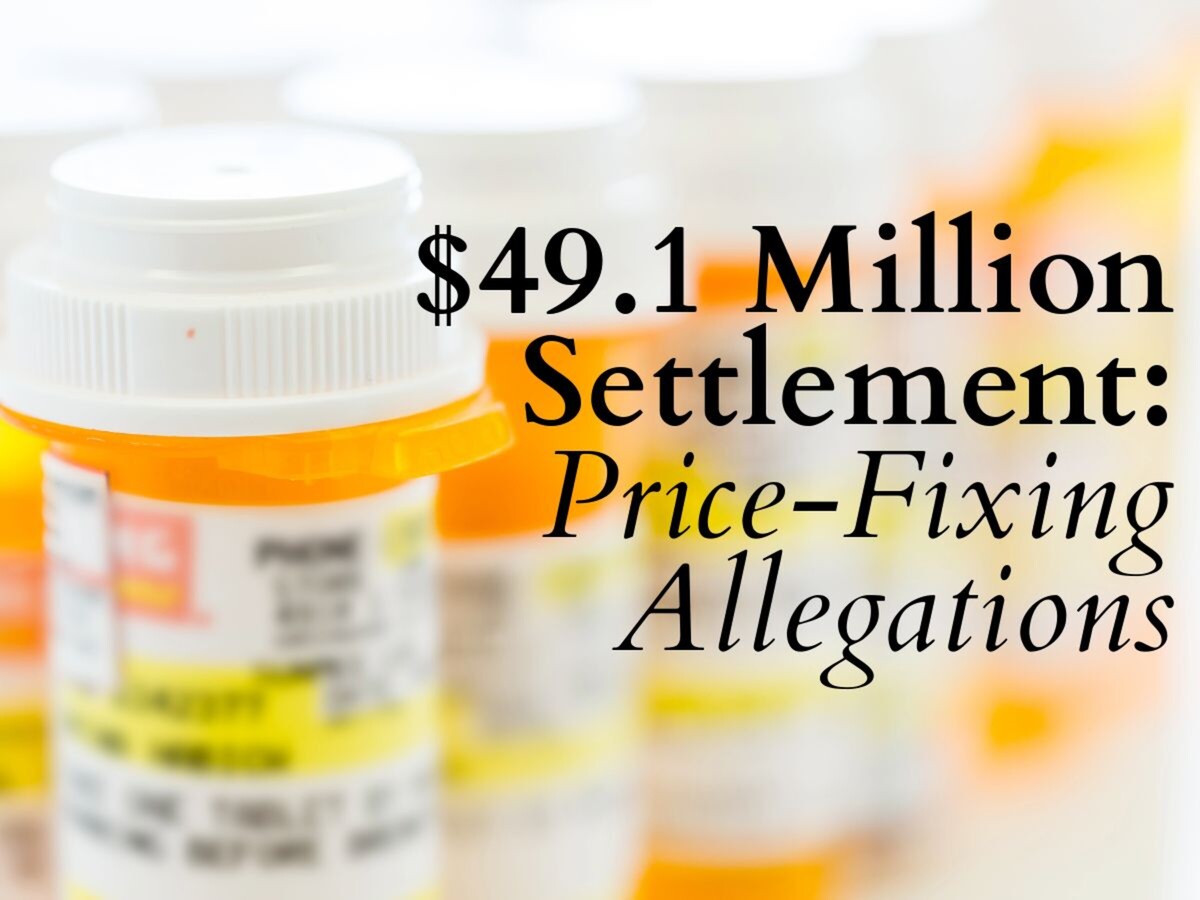Image


NEW JERSEY - Attorney General Matthew J. Platkin announced two major settlements with Heritage Pharmaceuticals and Apotex, totaling $49.1 million, to resolve allegations that the companies participated in schemes to manipulate prices, reduce competition, and restrict trade in the generic drug market. The settlements, part of ongoing multistate litigation involving nearly all U.S. states and territories, aim to hold the pharmaceutical industry accountable for alleged price-fixing that artificially raised the cost of critical medications.
The New Jersey-led coalition, under Connecticut’s leadership, initiated three antitrust complaints dating back to 2016. The complaints allege widespread collusion among generic drug firms, with accusations centering on “long-running conspiracies” involving up to 30 companies and numerous executives. Heritage and Apotex have agreed to cooperate with authorities as the cases proceed against other defendants, who include both companies and individual executives from prominent generic drug manufacturers.
“Americans already pay the highest prices in the world for prescription drugs, and generic drugs are intended as a way to save on these health costs,” said Attorney General Platkin. “We are pleased that these companies have agreed to cooperate with our ongoing litigation against their colleagues in the generic drug industry.”
The $10 million settlement with Heritage Pharmaceuticals was recently filed in the United States District Court in Hartford, Connecticut. A $39.1 million agreement with Apotex is awaiting finalization and signatures from all participating states and territories, with plans to file in the same jurisdiction soon. In addition to the financial settlements, both companies have agreed to implement reforms designed to ensure compliance with antitrust laws and prevent similar issues in the future.
Consumers who purchased generic drugs from either company between 2010 and 2018 may be eligible for compensation. Those seeking to verify their eligibility can call 1-866-290-0182, email info@AGGenericDrugs.com, or visit www.AGGenericDrugs.com.
“Collusion to inflate generic drug prices is an unconscionable example of placing profits over people,” said Cari Fais, Director of the Division of Consumer Affairs. “Schemes to drive up prices harm consumers, hospitals, health insurers, and taxpayers, and will not be tolerated.”
The three separate complaints in this multistate action address various alleged conspiracies involving generic drug pricing. Heritage Pharmaceuticals was initially named in the 2016 suit alongside 17 other companies and two executives, with price-fixing allegations on 15 specific generic drugs. A second complaint filed in 2019 targeted Teva Pharmaceuticals and other major companies, involving 15 senior executives accused of manipulating prices on a range of medications. The third and most extensive complaint claims 26 companies colluded to raise prices on 80 topical drugs, with preparations for trial in Connecticut underway.
Evidence collected from the investigation includes over 20 million documents and extensive phone records, showing frequent communication among industry executives at social events and private meetings. Investigators revealed that companies described their strategies with terms like “fair share” and “playing nice in the sandbox” as they coordinated to maintain high prices. The investigation also unveiled exchanges that included high-end dinners and extravagant outings, symbolizing a culture of camaraderie and collusion among competitors.
The New Jersey legal team handling the cases includes Deputy Attorney General Isabella R. Pitt, Deputy Attorney General Yale A. Leber, and Assistant Attorney General Brian F. McDonough from the Division of Law’s Affirmative Civil Enforcement Practice Group.
This multistate effort reflects an ongoing commitment by New Jersey and its partners to confront anticompetitive practices in the pharmaceutical industry, ultimately aiming to protect consumers from inflated drug prices and encourage transparency within the generics market.